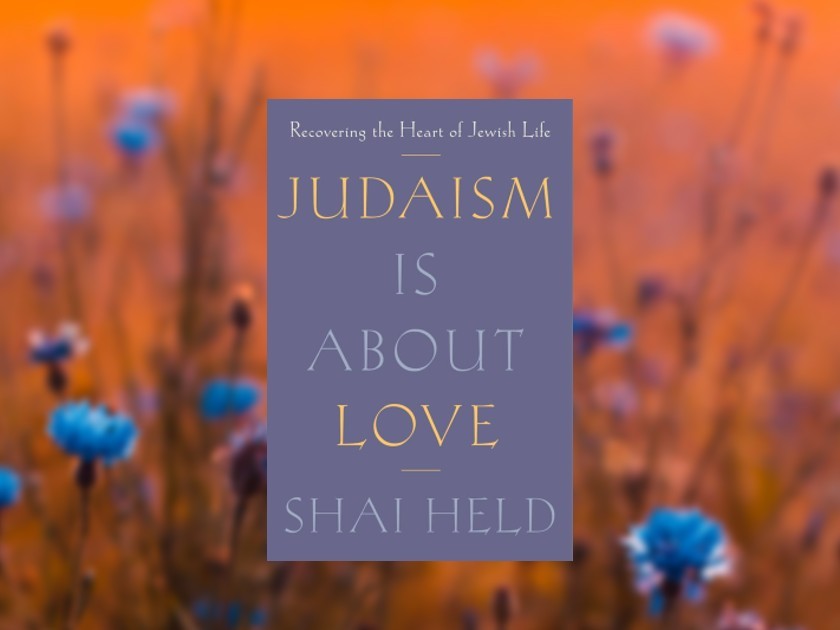
Tisha B’Av (the ninth day of the Hebrew month of Av) is the most painful day of the Jewish year. According to the sages of the Talmud sages, all the major catastrophes of Jewish history fell on that day. God decreed that the wilderness generation would not enter the land of Israel; the first Temple was destroyed by the Babylonians, the second was destroyed by the Romans; and the list goes on. In commemoration of all these tragedies, we limit our rejoicing during the month of Av, and we fast and mourn on its ninth day. Chanting the book of Lamentations (Eikhah), we ask God to “remember what has befallen us, [to] behold and see our disgrace.” Tisha B’Av is an annual day of communal shiva, a moment of grief for all that we have lost.
But just a few days later, the Jewish calendar makes a truly dizzying transition. A prominent Talmudic sage declares that “there were no happier days in Israel than the Tu B’Av (the fifteenth day of Av) and the Day of Atonement (Yom Kippur).” Why? Because on those days, the Mishnah explains, young women would go out and dance in the vineyards. Women and men would meet and couple off.
This is, to put it mildly, strange and surprising timing. The traditional seven days of mourning since the destruction of the Temple – for Judaism, the very center of the universe – have not even ended and already we are dancing with joy?
In my book, Judaism Is About Love: Recovering the Heart of Jewish Life, I suggest that through this calendrical anomaly the Jewish sages are making a stunning claim. In the wake of destruction and devastation, we should respond with… more love. Grief and mourning assuredly have their place – we would not be human without them – but they cannot be allowed to have the last word. When the world goes dark and all hope seems lost, the Jewish tradition teaches: take comfort and inspiration in one another. Let love lead you out of the abyss.
This idea has been on my mind a lot in recent months. When the galleys of my book arrived on October 14th, a mere week had passed since the nightmare of October 7th. Like so many of us, I was overwhelmed with grief, bewilderment, and rage. It took me several days to even open the box of books; what I felt toward my own work, the culmination of years of labor, was mainly indifference. In the midst of all that we are facing, I thought, who on earth would want to talk about love?
Over the past few months we’ve seen Israelis – and Jews around the world – rally behind one another, comforting the bereaved, tending to the wounded, housing the displaced, feeding the forlorn.
So I was startled by people’s responses. Whenever I shared my feelings of apathy towards my own forthcoming book, people would tell me that I had it exactly backwards. “Now,” they would say, “is precisely when people – when I–want and need to talk about love.”
Slowly – and if I’m honest, somewhat reluctantly – I began to see their point.
It now seems to me that people who responded in this way were unconsciously echoing one of Jewish tradition’s deepest insights. Just when we are tempted to give in to despair, when our hearts are wounded and our thoughts are ragged, when we fear we will collapse under all the grief we’re struggling to bear, we have an antidote to turn to: more love.
I don’t want to sound naive. Faced with destruction, love is decidedly not the only response we need. We need to ensure our own safety and the safety of our loved ones, and to prevent enemies from doing us further harm. We need to rebuild what has been ravaged. But love is an integral part of the response, and if we want our hearts to remain soft and open, we cannot do without it.
We have no choice but to grope for love even in the bleakest of times.
Precisely when we feel most deeply bereft, when we’re pulled between agonizing pain and deadening numbness, there can be something profoundly enlivening in turning to love, kindness, and generosity. Over the past few months we’ve seen Israelis – and Jews around the world – rally behind one another, comforting the bereaved, tending to the wounded, housing the displaced, feeding the forlorn. We’ve witnessed extraordinary (staggering, breathtaking) displays of chesed (love manifested in acts of kindness). Sometimes it feels like October 7th just goes on and on, threatening to consume us. At moments like that it’s worth remembering that love is still an option and an imperative.